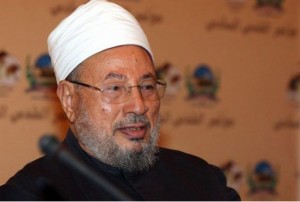Displaying items by tag: Qatar
Qatar: Israeli airstrike on Hamas leaders
The dramatic airstrike by Israel on Hamas leaders in Qatar on 9 October marks a new twist in a war already destabilising the wider Middle East. Qatar, long considered Hamas’ political base and a central mediator in ceasefire negotiations, condemned the attack as a flagrant breach of international law, while regional powers including the UAE and Saudi Arabia denounced it as an assault on sovereignty. The strike targeted Khalil al-Hayya, Hamas’ exiled Gaza chief and top negotiator, but reports indicate he and others survived. Coming just a day after Hamas’ armed wing killed six people in Jerusalem, the move risks collapsing fragile ceasefire talks. In Gaza City, Israeli evacuation orders have spread panic among civilians, many already displaced and trapped in worsening conditions. This year Israel has struck Hezbollah in Lebanon, Houthis in Yemen, and Iranian-linked targets in Syria and Iran, heightening fears of a regional war.
Gaza: Hamas agrees to Qatar’s latest ceasefire proposal
Qatar has emphasized the urgent need for a ceasefire in Gaza, highlighting what it called a ‘positive response’ from Hamas to a new truce proposal. The plan, similar to an earlier US-brokered offer previously accepted by Israel, calls for a sixty-day pause in fighting, the release of some hostages in exchange for hundreds of Palestinian prisoners, expanded humanitarian aid, and negotiations toward a lasting settlement. Israel, however, is maintaining its stance that the war will continue until Hamas disarms and all hostages are freed. Foreign minister Israel Katz says that fear of Israel’s plans to occupy Gaza city is bringing Hamas back to the negotiating table. Meanwhile, conditions in Gaza remain dire. The UN has warned that the minimal aid entering Gaza is far from sufficient, with hunger-related deaths increasing. Officials blame Israeli restrictions on humanitarian supplies, warning of imminent famine. Breaking news: Israel is calling up 60,000 reservists in preparation for its planned invasion of Gaza. See
Qatar: World Cup prayer request
Christians in Qatar are inviting the global church to join with them in praying for a move of the Holy Spirit during the World Cup, which begins on 20 November. The country is number 18 on the World Watch List. Although foreign Christians can worship in relative freedom, Qatari Christians are forbidden from having their own churches or even entering a church. Converts can also face extreme pressure from their family and community. Despite these challenges, the church in Qatar is growing - and there is the expectation that it will continue to do so during the World Cup. ‘We’re expecting a big move of the Holy Spirit during the World Cup,’ says a church leader for expats and migrant workers. ‘We already see the move of the Holy Spirit in Qatar. God is visiting people in their dreams. God is doing miracles. God is doing healings among the Qatari people.’
Qatar's Qaradawi Problem
Earlier this year, President Donald Trump accused Qatar of funding and promoting terrorism all over the world.
“Qatar has funded terrorism at a very high level,” he said, and it seems many in the White House shared his view.
Former White House Chief Strategist Steve Bannon had this to say about Qatar during a discussion at The Hudson Institute this week: “I don’t think it was just by happenstance that two weeks after the summit (in Riyadh) that we saw the blockade by the United Arab Emirates and Bahrain and Egypt and the king of Saudi Arabia on Qatar.”
Bannon also said repeatedly in his remarks that the Qatar situation was more important than the crisis in North Korea.
“I think the single most important thing that’s happening in the world is the situation in Qatar,” he said, expressing his support for the blockade.
Bannon was joined at the event by former U.S. Secretary of Defense Leon Panetta and CIA Director Robert Petraeus, both of whom also expressed concern about Qatar’s ties to terrorism, terror financing, and some of the Islamic world’s hate preachers.
Exhibit A is Yusuf Al-Qaradawi, the Egyptian-born cleric and religious leader who is now a Qatari citizen and has used Al-Jazeera, Qatar’s state-funded media outlet, to spread a message of hate across much of the Middle East.
If the Trump administration hopes to help end the ongoing blockade on Qatar, then it must pressure the Gulf nation to distance itself from hate preachers, especially Qaradawi, and allow him and others on the list to face consequences.
For many years Qaradawi’s talk show on Al Jazeera has condoned and encouraged suicide bombings especially against Israelis. The controversial preacher has endorsed Hitler and the attempted genocide of the Jewish people throughout history.
“The last punishment was carried out by Hitler. By means of all the things he did to them — even though they exaggerated this issue — he managed to put them in their place,” he has said. “This was divine punishment for them.”
Qaradawi has also suggested that homosexuals should be punished either by being burned or thrown off a building. The Islamic State group put his theories into practice when it chose to execute gay men in that very way.
Qaradawi’s views have resulted in bans on Qatari citizens entering several countries, including the United States, the United Kingdom, Tunisia and France.
In many ways his personal fortunes reflect those of the emirate of Qatar which he now calls home. Not long ago he was respected across the globe; now he is an international pariah.
Qaradawi is also on a list created by Saudi Arabia, UAE, Bahrain and Egypt of 59 people and 12 Qatari entities that are accused of promoting terror. Qatar has also repeatedly ignored extradition requests for Qaradawi from Egypt that began in 2015 when the cleric called for jihad in Egypt after the ouster of the Muslim Brotherhood.
Since the beginning of the crisis, Qatar has not backed down from its love for Qaradawi; he even attended a Ramadan dinner with Qatar’s ruling emir.
Qatar must also disavow Qaradawi and cast out such “religious leaders” if they want to once again be viewed as a reliable anti-terror partner. Qaradawi is not merely an example of Qatar’s support for terrorism; he is a reflection of what unchecked and unchallenged religious authority looks like, and his support for terrorists like Hamas and the Muslim Brotherhood, his calls for violence, “resistance” and jihad must be opposed by all those who favor freedom, peace and justice.
Some of the demands on Qatar — such as shutting down Al-Jazeera — may be unrealistic but if Qatar really wants the rest of the world to believe it opposes terrorism, it could start by deporting one of its most fervent endorsers.
Lianne Hikind is a professional writer in Florida and small business owner. She has been previously published by the Media Research Center and the Times of Israel. She was formerly on the board of Great Things for Israel.
The views expressed in this opinion article are solely those of their author and are not necessarily either shared or endorsed by the owners of this website.
By: Lianne Hikind on October 31, 2017 at 3:35pm
CONTINUED FOCUSED PRAYER FOR CHRISTIANS IN QATAR
Christians in Qatar are requesting prayers for the current diplomatic crisis their country is in. A growing number of other Arab countries have cut all ties with Qatar. The future for Qatar and its hundreds of thousands of migrant workers – tens of thousands of those being Christian believers – is unclear.
Open Doors spoke to several Christian believers living in Qatar. All of them asked for prayers for the developing situation. Saudi Arabia, UAE, Bahrain, Egypt, Yemen and other smaller states have severed diplomatic ties with Qatar over its alleged support for Islamist groups. “Let’s just pray this problem will not escalate further… that they will be able to settle their differences,” one believer from an Asian country said.
Up until now, the diplomatic crisis is not the biggest problem for the Christians. “Life goes on, almost normal,” another Christian leader puts it. “For us believers, life is same as last week, but do pray for our safety. There are crowds in the supermarkets because people are scared and are buying food to stock up.”
This leader points out that there have been special prayer gatherings by Christians to intercede for the leaders in Qatar and its neighboring countries. “Because of Ramadan, the holy month of fasting for the Muslims, most of the companies have cut the working hours by 50 percent. Also, Christian workers only have to work half days, so they have more time go to church and to pray.”
Another believer asked for prayers to be focused on peace, “That pride will not stand in the way of resolution; in essence: God’s will for the situation.”
An Open Doors worker expresses the hope that something good comes from this crisis: “Many Christians in Qatar already live with strict limitations to express their faith, and extra pressure on them is not what we want. But hopefully the current media attention on Qatar sparks people to pray for the country and the people living and working there.”
PRAY THAT ALL PARTNERS WILL WORK TOGETHER TOWARD COMMON SOLUTIONS THAT ENABLE SECURITY AND STABILITY IN THE REGION
More: https://www.westernjournalism.com/qatars-qaradawi-problem/
Qatar: spiritual poverty
Qatar is accused by her Gulf neighbours of destabilising the region, and some nations have cut diplomatic ties (see Prayer Alert article ). The ramifications of escalating tensions are yet to be fully determined. Qatar is one of the wealthiest countries in the region but suffers from devastating spiritual poverty; it is almost entirely Muslim, and proselytising is forbidden. The church mainly consists of foreigners. At this time of unrest we can intercede for the 90% of Qataris who have not yet heard the good news. May this pivotal moment in Qatar’s history become a spiritual turning point for a nation that has been long closed to the Gospel. Pray for the south and southeast Asians, Egyptians, Palestinians, Lebanese, Syrians, and Iranians, who comprise most of Qatar’s workforce.
Gulf tensions continue
A ransom paid by Qatar to Iranian Al Qaeda-linked terrorists to secure the release of members of Qatar’s royal family being held hostage is believed to have prompted Saudi Arabia, UAE, Bahrain and Egypt to sever ties with the tiny but resource-rich emirate, accusing Doha of ‘funding terrorists’. Qatar is home to 10,000 American troops and a major US military base. On 8 June the US and Qatari navies began manoeuvres, just hours after the USA agreed a major warplane sale to the Gulf kingdom, underscoring a military alliance despite Donald Trump's assertion that Doha supports ‘extremism’. It is not clear when the joint naval exercise was arranged. Washington is sending conflicting signals about its position on the diplomatic crisis. Trump expressed support for the Saudi-led allegations against Qatar, but Pentagon and State Department officials have scrambled to reassure the emirate of support and continued sales of F-15 fighters. Meanwhile Turkey has deployed soldiers and military hardware to Qatar, and will train Qatari police. See
Qatar: ‘no surrender’
Qatar has vowed it will not surrender its foreign policy in an escalating row with other Arab states over its alleged connections to extremism, which it denies. Its foreign minister has said he favours diplomacy to resolve the crisis, and that there is no military solution. Meanwhile, Qatar's Al Jazeera network said it was suffering a cyber-attack; it has been in the crosshairs in the current dispute, and other Gulf countries blocked it in May. There were also reports of hacking attempts on Qatar’s state-run TV station. Saudi Arabia and other states cut travel and diplomatic links with the country on 5 June. The emir of Kuwait is trying to mediate the row, carrying out shuttle diplomacy between Qatar, Saudi Arabia and the UAE.
Qatar: building God’s Kingdom in football stadiums
Qatar is hosting the 2022 FIFA World Cup. There are thousands of migrants - from India, Nepal and the Philippines - working on the project. God is at work and many are meeting Jesus. One convert from Buddhism said, ‘I would never have expected to become a Christian in a strict Muslim country. But it happened.’ Evangelism is forbidden - but that isn't stopping the Christians. ‘We can't go to people with the gospel. But they are coming to us. I have many conversations with colleagues about Christianity, and they just keep asking questions. The only thing we have to do is answer them. There is no law against that.’







